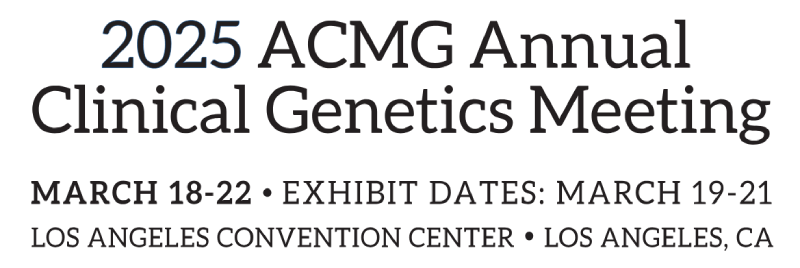Novel Splice-Driven Mechanisms of Human Genetic Diseases Unveiled by Long-Read RNA-Sequencing
22 Mar 2025
Venue:
Los Angeles Convention Centre
Meeting Room:
Petree Hall D
Laboratory Genetics and Genomics
-
Accredited:
- Accredited
-
Primary Categories:
- RNA and Gene Therapy
-
Secondary Categories:
- RNA and Gene Therapy
Alternative splicing has long been associated with disease mechanisms in different disease, cancer, cardiovascular, pulmonary, neurological and Mendelian disorders, but the application of long read sequencing technologies is a relatively new area of research. In recent years, the reduced cost of long read sequencing, as well as the rapid development of long read-specific bioinformatics tools has made possible the studies that will be highlighted by experts in this field during this session. Long read sequencing offers the capability to sequence full-length mRNA transcripts to more directly link splicing quantitative trait loci (sQTLs) to disease-relevant protein alterations, in other words, a more accurate and efficient connection from DNA to protein, through context-specific transcript expression knowledge. Long read sequencing approaches allow for quantification of disease-associated isoforms and prediction of encoded proteins, which provides a path towards mechanistic understanding of disease. In this session, we will present the latest research that demonstrates how long read RNA-seq enables discovery and contextualization of complex alternative splicing contributing to disease pathophysiology. High-throughput long-read RNA-seq enables identification of thousands of novel isoforms that are entirely absent from existing annotations (GENCODE, RefSeq, etc.). We show how the resulting full-length transcript information clarifies the splicing effect for specific variants identified through short-read based sQTL analysis and reveals new sQTLs that were difficult to identify with only short read sequencing data. Further, with the ability to catalog the entire diversity of full-length transcript isoforms in genes known to have complex splicing, we are now able to query whether certain diseases express dominant isoforms across all patients, or whether the expressions are driven by patient-specific isoform expression. In all cases, speakers in this session will highlight the process by which long read RNA-seq identifies novel isoforms that could be implicated in disease progression, including disease subtype specific and patient-specific isoforms. The first talk gives a higher-level overview of how long-read RNA-seq datasets can be used to bring new insight into human molecular genetics (e.g., addressing incomplete transcript annotation, linking sQTLs to full-length isoforms, more direct links between DNA lesions and the protein alterations). This talk will help the audience members understand how the individual talks tie into the theme of the overall session.
Learning Objectives
- Define situations in which short-read or long-read RNA sequencing data is appropriate for various clinical questions
- Discriminate between the types of molecular information derivable from RNA-sequencing versus proteomics data
- Recognize that long read RNA-seq identifies transcripts of disease-associated genes which are not in annotation
- Recognize that for some genes the MANE transcript is not the major transcript in the disease-relevant tissue
- Recognize that transcript mis-annotation has implications for variant interpretation in rare or complex disease setting
- Recognize that transcript mis-annotation has implications for the development of RNA targeting therapies
Agenda
-
 Introduction of Speakers8:00 AM – 8:05 AM
Introduction of Speakers8:00 AM – 8:05 AM -
 Long-Read Proteogenomics to Connect Disease-Sssociated sQTLs to the Protein Isoform Effectors of Disease8:05 AM – 8:17 AM
Long-Read Proteogenomics to Connect Disease-Sssociated sQTLs to the Protein Isoform Effectors of Disease8:05 AM – 8:17 AM -
 Disease-Causing Common Splice Variants in Chronic Obstructive Pulmonary Disease8:18 AM – 8:30 AM
Disease-Causing Common Splice Variants in Chronic Obstructive Pulmonary Disease8:18 AM – 8:30 AM -
 Identification of Differential Isoform Usage in Schizophrenia Brain Using Long-Read RNA Sequencing8:33 AM – 8:45 AM
Identification of Differential Isoform Usage in Schizophrenia Brain Using Long-Read RNA Sequencing8:33 AM – 8:45 AM -
 Mis-Annotation and Variation in Transcript Usage of Protein-Coding Genes Revealed by Long-Read RNA Sequencing8:45 AM – 8:57 AM
Mis-Annotation and Variation in Transcript Usage of Protein-Coding Genes Revealed by Long-Read RNA Sequencing8:45 AM – 8:57 AM -
 A More Comprehensive Landscape of RNA Alterations in Cancer with Long-Read Sequencing8:57 AM – 9:09 AM
A More Comprehensive Landscape of RNA Alterations in Cancer with Long-Read Sequencing8:57 AM – 9:09 AM -
Panel DiscussionPanel Discussion and Q&A9:09 AM – 9:30 AM
-




)
)
)
)
)
)
)
)
)
)
)
)
)
)
)
)
)
)
)
)